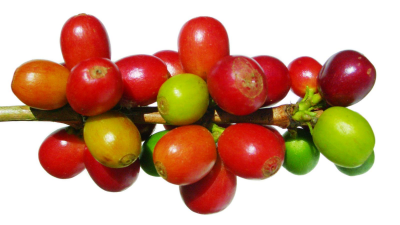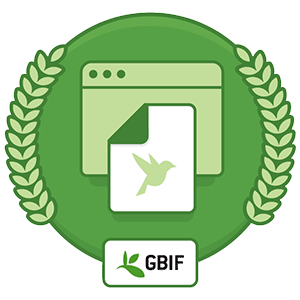BID Online - Biodiversity Data Mobilization
- gbif.es, elearning |
- Russell, Laura |
- Cezón, Katia |
- Grant, Sharon |
- Pamerlon, Sophie |
- Lecoq, Marie Elise |
- Bagard Laursen, Maheva |
- Raymond, Mélianie |
- Bloom, David |

 |
This course aims to enhance the capacity to plan and implement biodiversity data mobilization efforts effectively and according to GBIF standards. There is a strong focus on the technical aspects of data mobilization — in particular everything related to the data lifecycle: planning, mobilization, management and publishing in order to increase the amount, richness and quality of the data published through the GBIF network. |
Información del curso
Course structure and prerequisites
This course contains online and onsite components with a strong emphasis placed on practical exercises, group work, and social interaction via an online forum within this elearning platform.
The official language of the course is English. Support for other languages is often available (particularly French, Spanish and Russian).
To make best use of the activities around this workshop, the participants should possess the following skills and knowledge:
- Basic skills in computer and internet use, and, in particular, in the use of spreadsheets.
- Basic knowledge about geography and biodiversity informatics: geography and mapping concepts, basic taxonomy and nomenclature rules.
- Willingness to disseminate the knowledge learned in the workshop with partners and collaborators in your project by adapting the biodiversity data mobilization training materials to specific contexts and languages while maintaining their instructional value.
- A good command of English. While efforts are made to provide materials in other languages, instruction will be in English.
Course topics
Foundations
- Receive introductions to GBIF and associated communities.
- Learn key concepts of biodiversity informatics, particular to biodiversity digital data management.
- Receive an introduction to the Darwin Core Standard and its components.
Planning
- Learn to understand the different stages for planning a mobilization project and how to adapt stages to a specific project.
Data Capture
- Learn to identify the types of data and how to best capture relevant information using best practices, existing softwares, tools and techniques.
Management
- Learn data quality concepts and receive an introduction to tools used for standardizing data, validating data, and cleaning data.
Publishing
- Learn the process of making biodiversity data freely available online, also known as data publishing, utilizing GBIF’s Integrated Publishing Toolkit (IPT).
- Learn about
Learning objectives
- Develop a data mobilization strategy customized to a given institutional framework.
- Apply a model to build a data mobilization strategy and the associated mobilization protocols.
- Evaluate a data mobilization strategy to identify potential gaps, inefficiencies and pitfalls.
- Apply a data capture protocol to produce digital biodiversity data from analogue sources.
- Use software tools designed to facilitate biodiversity data capture.
- Apply data cleaning protocols to evaluate and increase the fitness for use of a biodiversity dataset.
- Use software tools to evaluate the fitness-for-use of a biodiversity dataset
- Use software tools designed for (biodiversity) data cleaning.
- Apply a biodiversity data publishing mechanism.
- Define the publishable data types and subtypes (if any) for a biodiversity dataset.
- Use the GBIF IPT to publish biodiversity datasets using the appropriate extensions.
- Capacitate others in the planning, capture, management and publishing of biodiversity data.
Certification
Upon successful completion of the course and successful assessment of assignments (by trainers and mentors), participants have the opportunity to receive an official certification in the form of a Mozilla Open Badge.
Participants are required to submit Use Case 2 and Use Case 3 and each Use Case is scored against the educational rubrics (EN, FR, SP, RU) for the course.
|
|
An overall score of 2.5-2.9 earns a BASIC Biodiversity Data Mobilization badge |
|
|
An overall score of 3.0-4.0 earns an ADVANCED Biodiversity Data Mobilization badge |
Acknowledgements
|
Course design and instruction The following individuals are recognized for their significant contributions to the course design, materials and instruction:
Special credit to Arthur Chapman for the reuse of his materials on Data Quality. |
Translations The following individuals are credited with the translations for the matierals: French - Anne Sophie Archambeau, Marie Elise Lecoq, Nicolas Noé, Sophie Pamerlon Russian - Natalya Ivanova, Maxim Shashkov Spanish - Katia Cezón, Anabela Plos, Manuel Vargas, Paula Zermoglio |
|
The success of this course depends heavily on the support provided to participants from GBIF's network of capacity enhancement mentors. Visit the GBIF page on capacity enhancement mentoring to read more about these individuals and their contributions. |
|
|
Resource support
|
|
|
Elearning platform The hosting for this eLearning space is kindly provided by GBIF Spain , which is sponsored by the Spanish Ministry of Science and Innovation and managed by the Spanish National Research Council - CSIC. Icons used in this course are made by Freepik from www.flaticon.com |
|
Tutores

gbif.es, elearning

Russell, Laura

Cezón, Katia

Grant, Sharon

Pamerlon, Sophie

Lecoq, Marie Elise

Bagard Laursen, Maheva

Raymond, Mélianie

Bloom, David


